Filter by
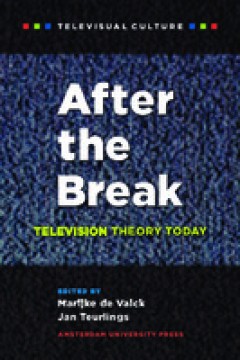
After the Break
Television as we knew it is irrevocably changing. Some are gleefully announcing the death of television, others have been less sanguine but insist that television is radically changing underneath our eyes. Several excellent publications have dealt with television's uncertain condition, but few have taken the specific question of what television's transformations mean for the discipline of Telev…
- Edition
- -
- ISBN/ISSN
- 978 90 8964 522 7
- Collation
- 204
- Series Title
- Televisual Culture
- Call Number
- -

The Routledge handbook of refugee narratives
- Edition
- -
- ISBN/ISSN
- 9781003131458
- Collation
- -
- Series Title
- -
- Call Number
- -
- Edition
- -
- ISBN/ISSN
- 9781003131458
- Collation
- -
- Series Title
- -
- Call Number
- -

Middlebrow cinema
- Edition
- -
- ISBN/ISSN
- 9781315630564
- Collation
- -
- Series Title
- -
- Call Number
- -
- Edition
- -
- ISBN/ISSN
- 9781315630564
- Collation
- -
- Series Title
- -
- Call Number
- -
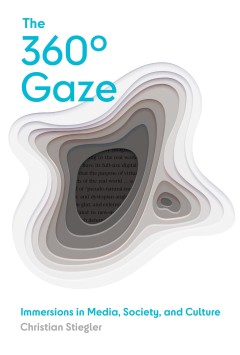
The 360? gaze :immersions in media, society, and culture
"A history of Immersion from Plato's cave to the Oculus Rift"--OCLC-licensed vendor bibliographic record.
- Edition
- -
- ISBN/ISSN
- 9780262363310
- Collation
- 1 online resource.
- Series Title
- -
- Call Number
- -
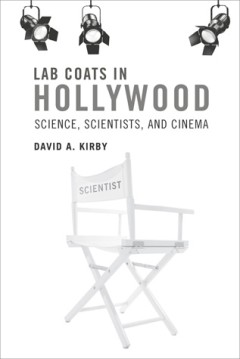
Lab coats in Hollywood: Science, scientists, and cinema
Stanley Kubrick's "2001: A Space Odyssey", released in 1968, is perhaps the most scientifically accurate film ever produced. The film presented such a plausible, realistic vision of space flight that many moon hoax proponents believe that Kubrick staged the 1969 moon landing using the same studios and techniques. Kubrick's scientific verisimilitude in 2001 came courtesy of his science consultan…
- Edition
- -
- ISBN/ISSN
- 9780262295499
- Collation
- 1 online resource (xiv, 265 pages) :illustrations
- Series Title
- -
- Call Number
- -
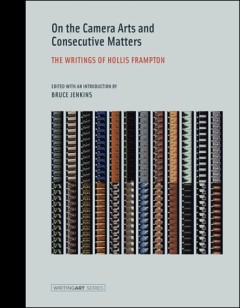
On the Camera Arts and Consecutive Matters: The Writings of Hollis Frampton
The collected writings of artist and filmmaker Hollis Frampton, including all the essays from the long-unavailable Circles of Confusion along with rare additional material.
- Edition
- -
- ISBN/ISSN
- -
- Collation
- 1 online resource (xx, 331 pages) : illustrations (some color).
- Series Title
- -
- Call Number
- -
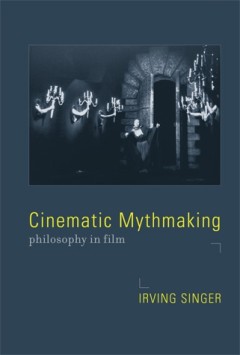
Cinematic mythmaking : Philosophy in Film
Mythic themes and philosophical probing in film as an art form, as seen in works of Preston Sturges, Jean Cocteau, Stanley Kubrick, and various other filmmakers. Film is the supreme medium for mythmaking. The gods and heroes of mythology are both larger than life and deeply human; they teach us about the world, and they tell us a good story. Similarly, our experience of film is both distant and…
- Edition
- -
- ISBN/ISSN
- -
- Collation
- 1 online resource (x, 245 pages).
- Series Title
- -
- Call Number
- -
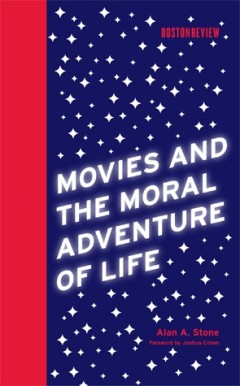
Movies and the moral adventure of life
Films as life lessons, enlarging our sense of human possibilities.
- Edition
- -
- ISBN/ISSN
- -
- Collation
- 1 online resource (xvi, 219 pages).
- Series Title
- -
- Call Number
- -
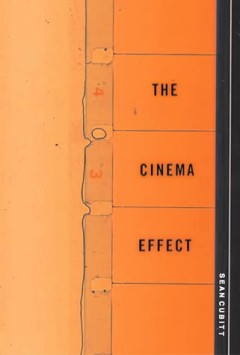
The Cinema Effect
A history of images in motion that explores the "special effect" of cinema. It has been said that all cinema is a special effect. In this highly original examination of time in film Sean Cubitt tries to get at the root of the uncanny effect produced by images and sounds that don't quite align with reality. What is it that cinema does? Cubitt proposes a history of images in motion from a digi…
- Edition
- -
- ISBN/ISSN
- 9780262270991
- Collation
- -
- Series Title
- -
- Call Number
- -
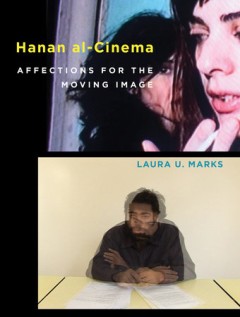
Hanan al-cinema : affections for the moving image
An examination of experimental cinema and media art from the Arabic-speaking world that explores filmmakers' creative and philosophical inventiveness in trying times.OCLC-licensed vendor bibliographic record.
- Edition
- -
- ISBN/ISSN
- 9780262331074
- Collation
- 1 online resource (xii, 400 pages) :illustrations.
- Series Title
- -
- Call Number
- -
 Computer Science, Information & General Works
Computer Science, Information & General Works  Philosophy & Psychology
Philosophy & Psychology  Religion
Religion  Social Sciences
Social Sciences  Language
Language  Pure Science
Pure Science  Applied Sciences
Applied Sciences  Art & Recreation
Art & Recreation  Literature
Literature  History & Geography
History & Geography